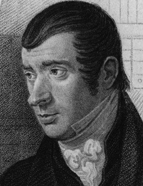

However, once we understand and accept this double and inseparable historiographical and ideological nature, so evident , after all, in all Portuguese 19 th - century historiography (even in Alexandre Herculano), we can then understand the true richness of Liberato ’ s historiographical production – n amely , a documented search for sources and direct testimonies; an acute awareness of the political interests involved in the events narrated; and the constant use of classic historical examples from European literature and politics. Such stylistic richness, of course, does not exempt him from criticisms of sectarianism, such as those directed at him by António Viana ( Silva Carvalho e o seu Tempo [Silva Carvalho and his time] , vol. I, 1891, pp. 372-74, n o . 1), taken up by João Carlos Alvim, in the re-edition of Memórias … [M emoirs] ( 1982, pp. XVI, n o . 7, XVIII, n o . 9, XIX, n o . 12 and XX, n o . 15). However, for a better understanding of the subject, they should be positioned in the context of the Masonic struggles around the Grande Oriente Lusitano [Great Lusitanian Orient] , especially between the Saldanhista and Carvalhista currents (Oliveira Marques in História da Maçonaria em Portugal [History of Masonry in Portugal] , vol. II, 1996, pp. 52 and 54-55 , and Fernando Catroga in História de Portugal [History of Portugal] directed by José Mattoso, vol. V, 1996, p. 204).
Lastly, we should look at some recent readings on the impact of Liberato ’ s work on later historiography. Luís Reis Torgal draws parallels between José Liberato Freire de Carvalho and other proto-liberals and liberals, such as Manuel Fernandes Tomás (1771-1822) and Manuel Borges Carneiro (1774-1833) – the anonymous author of Portugal Regenerado [Regenerated Portugal] in 1820 . Reis Torgal , thus , recognises in Liberato ’ s Ensaio histórico-político sobre a constituição e governo de Portugal [Historical Political Essay on the constitution and government of Portugal] , the presence of the ‘true paradigm of liberal historical interpretation’, whose ‘outlines of historical analysis [...] were to be followed and glossed over by liberal and republican historiography’ ( História da História em Portugal … [History of History in Portugal] , 1996 , p. 32). Sérgio Campos Matos, in turn , specifies the importance of the central legacy of José Liberato ’ s historiography, the ‘democratic and anti-British theses’, decadent and anti-Pombaline, in the historiographical production of José de Arriaga and Oliveira Martins (in Historiografia e Memória Nacional [Historiography and National Memory] , 1998 , pp. 95-96).
This work is financed by national funds through FCT - Foundation for Science and Technology, I.P, in the scope of the projects UIDB/04311/2020 and UIDP/04311/2020.
